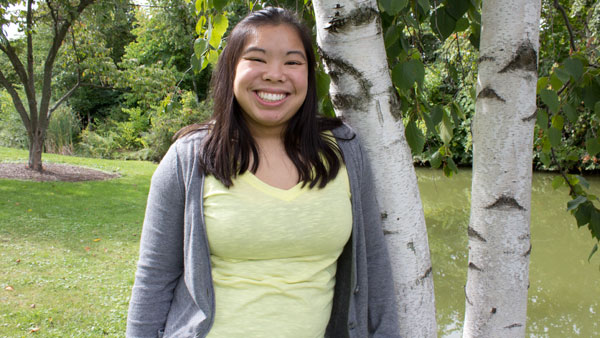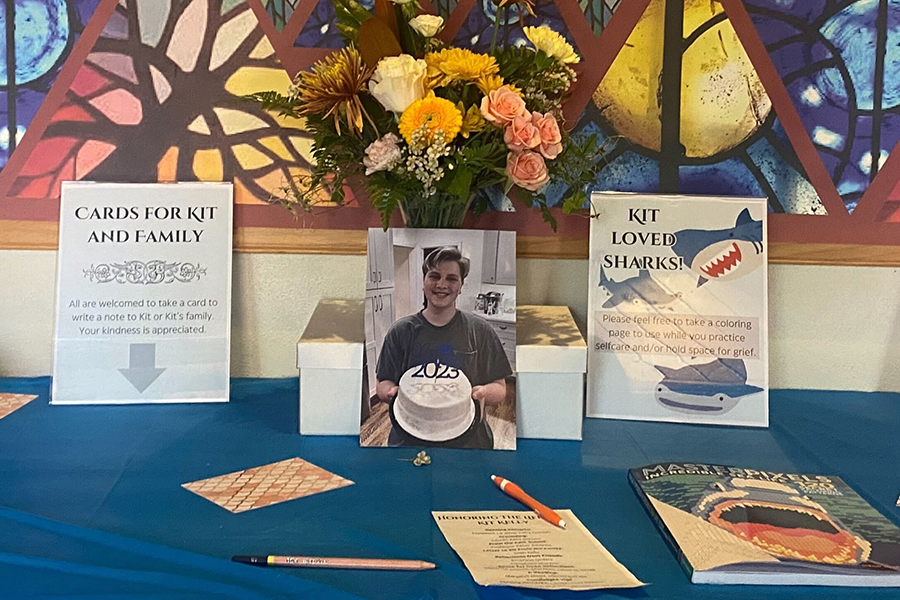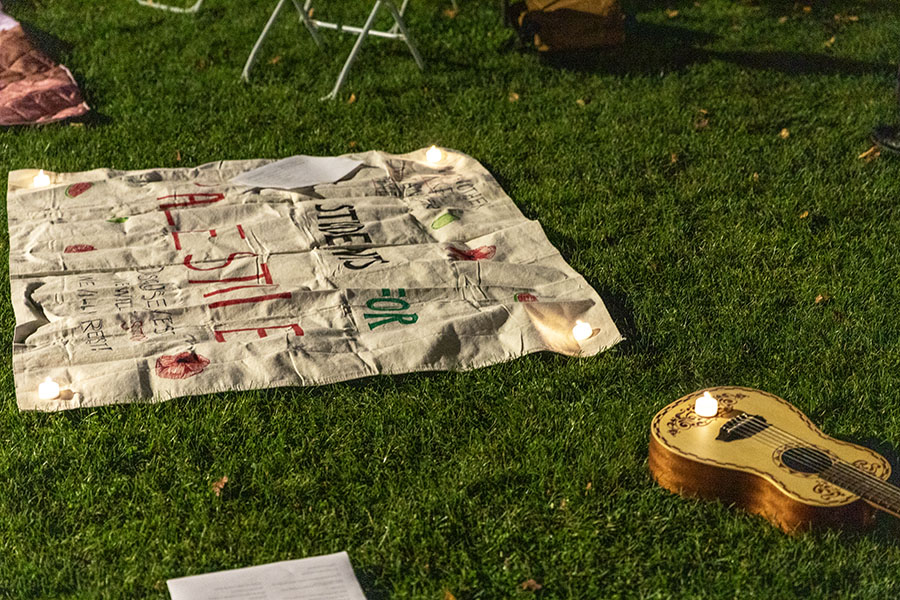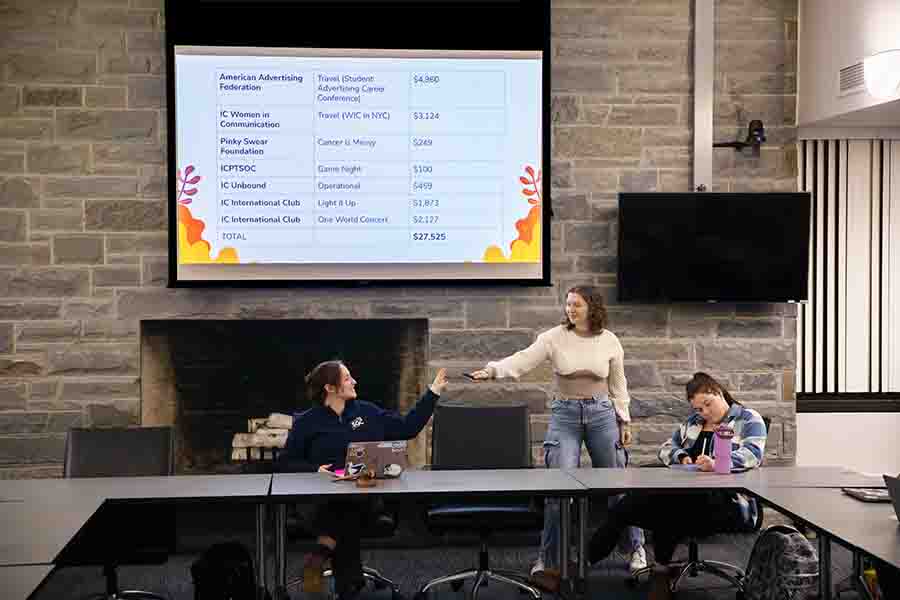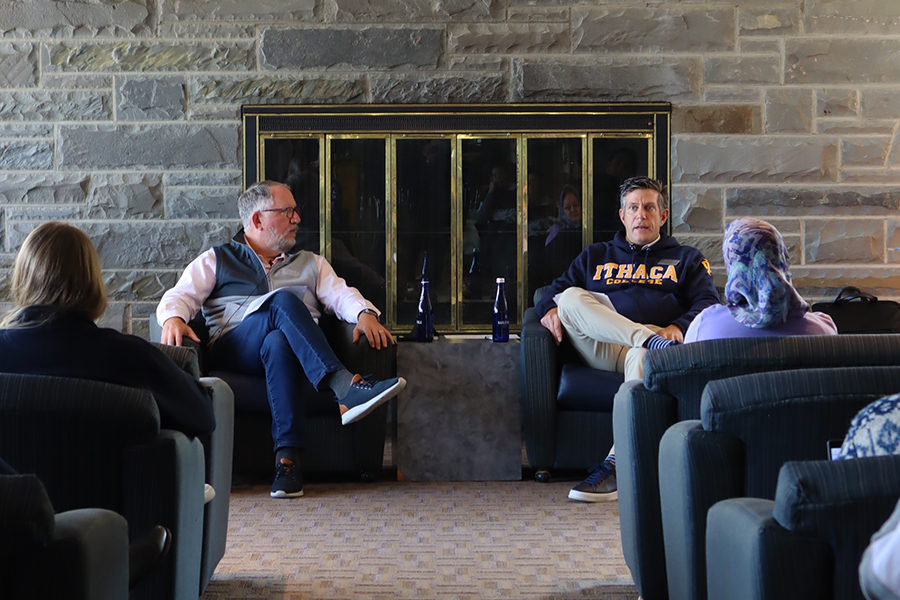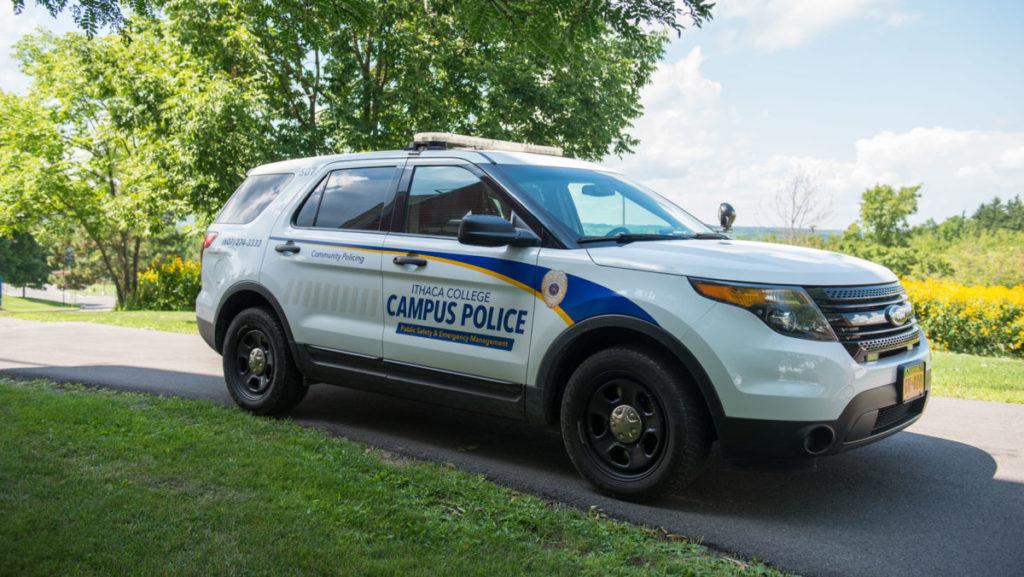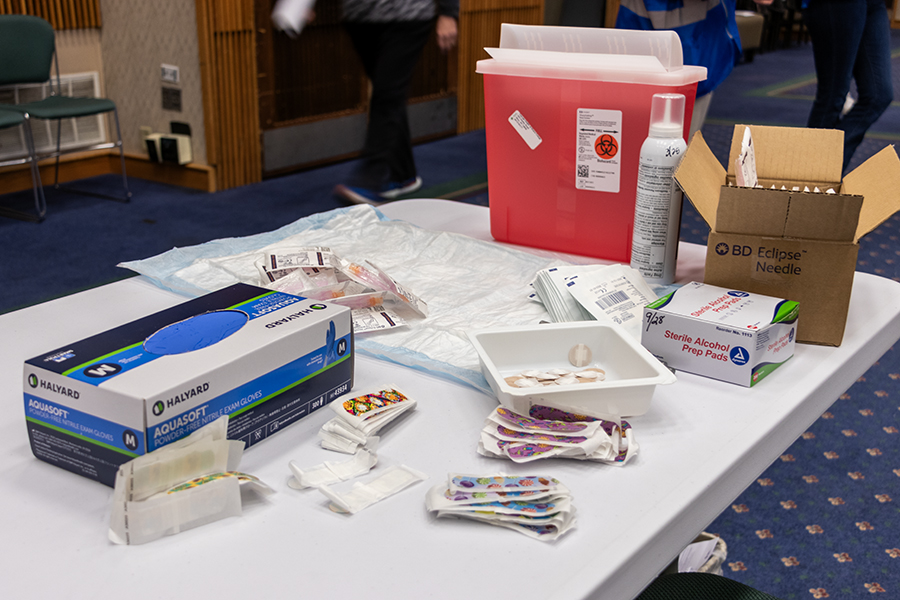At just three months old, sophomore Emily Quinn was adopted from China. As she grew up with family in the United States, she learned about her ethnicity and Chinese culture alongside American customs.
Last semester, Quinn founded the Adoption Support and Awareness Alliance club at Ithaca College to share her adoption story with the college community. She said many of the adoptees she has met on campus did not have the same cultural upbringing as her.
“I was so fortunate to have this upbringing with learning about my culture and adoption my entire life,” Quinn said. “I knew I had … enough skills to start a club where I could help other people with adoption issues that come up, or make a safe community a safe place for them on campus.”
Quinn said she attended camps for adopted children, hosted by Heritage Camps for Adoptive Families, for 14 years. Each of the organization’s 11 camps is three-to-four days long, and children adopted internationally or domestically learn about different heritages from their counselors. At these heritage camps, Quinn said, she learned about her heritage and adopted life.
Quinn said many students who are adoptees do not have a safe place on campus to express themselves and learn from one another. The Center for Counseling and Psychological Services at the college does not currently provide specific support for adoptees.
Quinn said learning about her adoption inspired her to become an advocate, which was an important factor in the creation of ASAA.
Ari Kissiloff, assistant professor in the Department of Strategic Communications and adviser to ASAA, said he hopes the club will raise funds to help finance families of adopted children in the Ithaca community. Kissiloff, an adoptee born in New York City, is married to an adoptee from Korea.
“I like to have things going on that reflect my commitment to Ithaca College as a community,” Kissiloff said. “I just like being involved in that level, but in this case it was also because of the adoption club, I figured that it was the need in their getting together and them trying to build a community. And, you know, I figured faculty should be a part of that, too.”
Vivian Lin, an ASAA member and president of Asian American Alliance, said she hopes her club will work with the ASAA to create a safe environment in which everyone can open up and learn from one another.
“It’s important to really form that united community, especially with adoptees, [because] it’s hard to find a place to fit in sometimes,” Lin said.
Lin said through the combined efforts of the AAA and the ASAA, both clubs will promote each other, garnering more attention and developing a core group of attendees each meeting.
Quinn said her goals for the club include celebrating National Adoption Month in November. During the month-long celebration, she said, she wants to hold campus-wide events like inviting a guest speaker. The purpose will be to bring more awareness about adoption and the issues surrounding the process, she said.
“It can take at least two years — in some cases more, in some cases less — but an average of two years or so to get a child placed with you,” Quinn said. “It’s also really important to tell people and to let people know you need to love the children for whoever they are and whatever they can bring to the table, not necessarily really what you want them to be or what society wants them to be.”
Quinn said she urges the community to be aware of adoption-related topics and stigma.
“It’s really important to know [that] there are certain issues that can come up with adoption,” Quinn said. “So, if there are people who you know are adopted, don’t push them on these issues, especially if you don’t know what you’re talking about, and don’t make quick assumptions or judgments on anyone who’s adopted.”
Meanwhile, adoptees across the country are using a new genetic DNA testing concept to learn about their heritage. The genetic test, titled “23andme,” allows people to discover ancestral origins and trace lineage with a personalized analysis of DNA. The process consists of using a cotton swab to collect DNA and sending it to a testing facility to determine a person’s genetic, birth and medical histories.
Kissiloff and his wife have two biological children. Kissiloff said he decided with his wife to take the 23andme genetic test. Kissiloff said he wanted to confirm that his medical history is healthy so he would not pass on any unknown diseases to his children.
“[My wife and I] actually did that because we wanted to, not to find parents, but just to see if there were any diseases to watch out for, because we don’t have the benefit of having [diseases] that run in the family, and neither do our kids” Kissiloff said.
Quinn said she has not and does not plan on taking this test.
“I just think it definitely depends on the adoptee, because every story is different,” she said.
Discussing her long-term plans for the club, Quinn said she hopes that the ASAA will help adoptees on campus appreciate their experiences.
“Family can’t be defined just by genetics,” Quinn said. “Adoption is a result of love, and there’s no other way to define it, except for it gives potential for a family to form with unconditional love, and adoptive families are still real families.”


